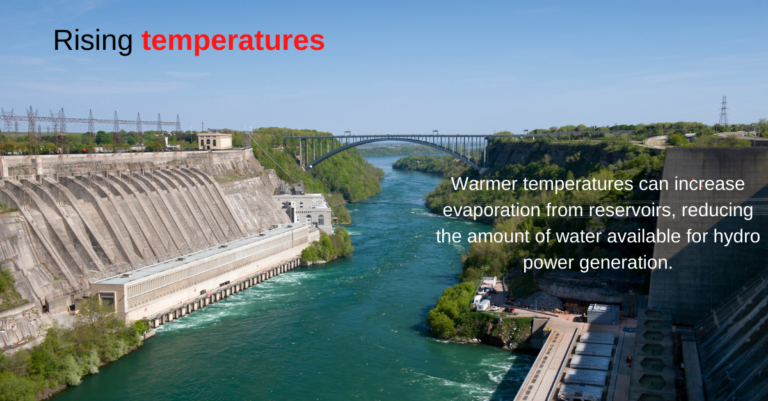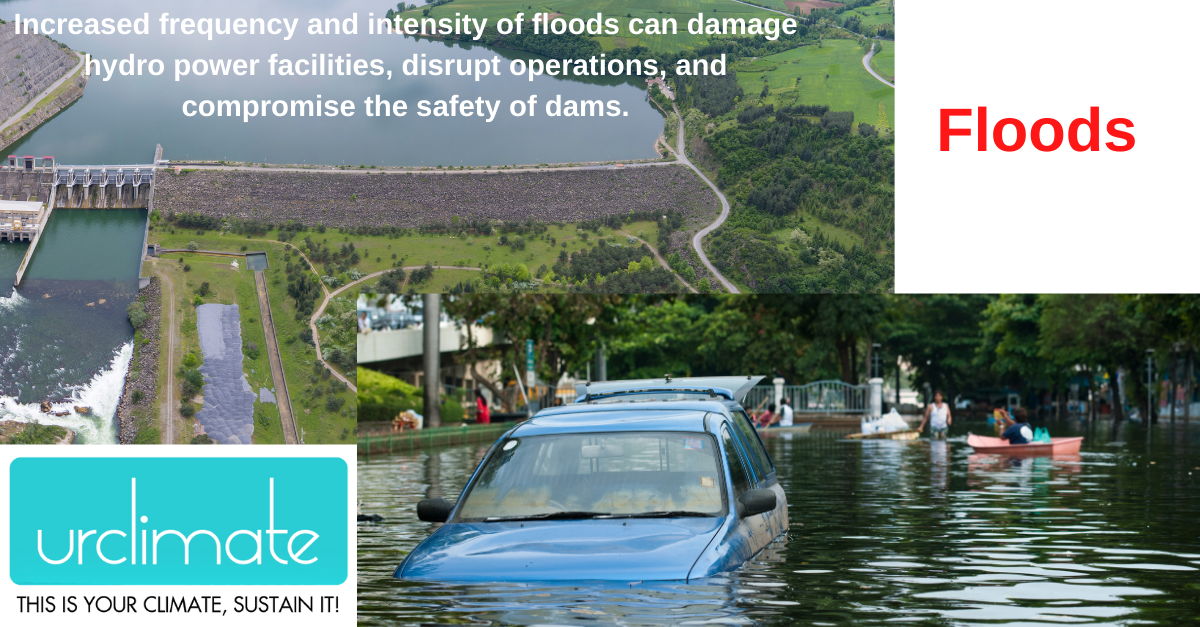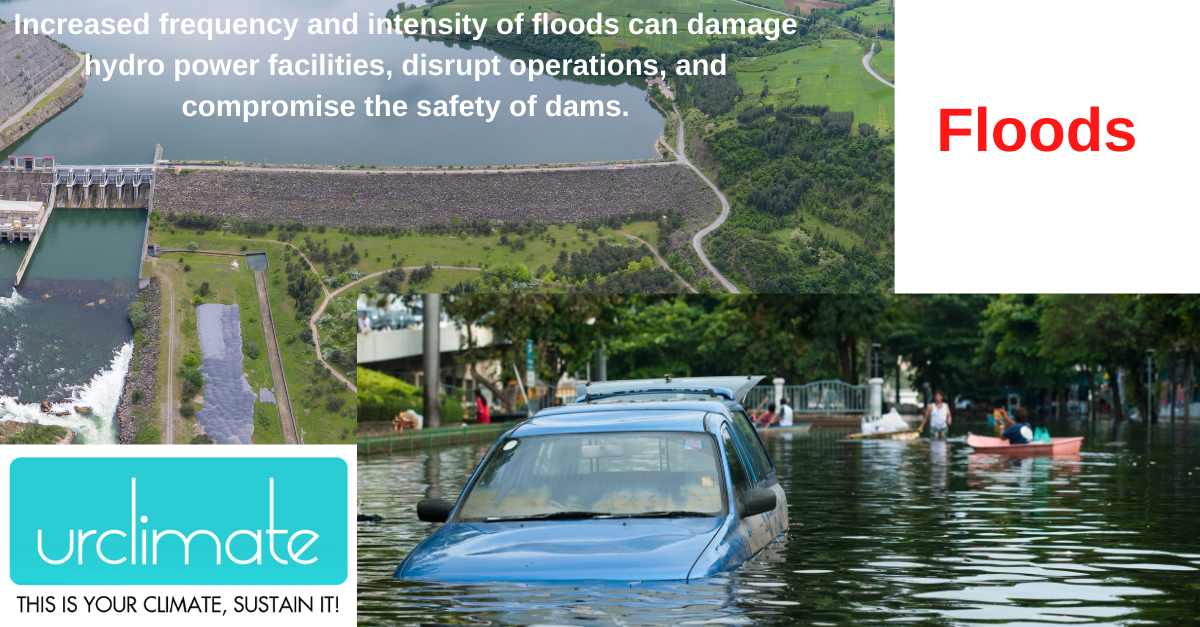Hydropower is a reliable and renewable energy source that has been providing electricity to communities for over a century. With the growing concern of climate change, it is becoming increasingly important to consider the potential risks that hydropower plants may face as a result of this global issue.

Climate change can bring about various risks to hydropower plants, such as changes in water availability, increased frequency of extreme weather events, and rising water temperatures. For example, a reduction in water flow due to drought conditions or changing precipitation patterns can reduce the plant’s power generation capabilities. Similarly, heavy rainfall or severe weather conditions can cause damage to infrastructure and disrupt operations.
However, hydropower plants can also play an important role in mitigating the effects of climate change. By providing a clean and renewable energy source, hydropower helps to reduce greenhouse gas emissions and reduce the use of fossil fuels, which are major contributors to climate change. Additionally, hydropower plants can be used for purposes other than electricity generation, such as water management, flood control, and irrigation.
To minimize the risks of climate change to hydropower plants, it is important to consider best practices in planning, design, and operation. This includes conducting regular risk assessments, implementing sustainable water management strategies, and incorporating climate-resilient technologies and infrastructure. It is also important to engage in collaborative efforts with stakeholders, including government agencies, communities, and other organizations to address these challenges.

In conclusion, hydropower remains an important energy source, but we must also be mindful of the potential risks posed by climate change. By taking a proactive approach and implementing best practices, we can ensure that hydropower plants continue to provide clean and reliable energy while also reducing greenhouse gas emissions and mitigating the effects of climate change.



